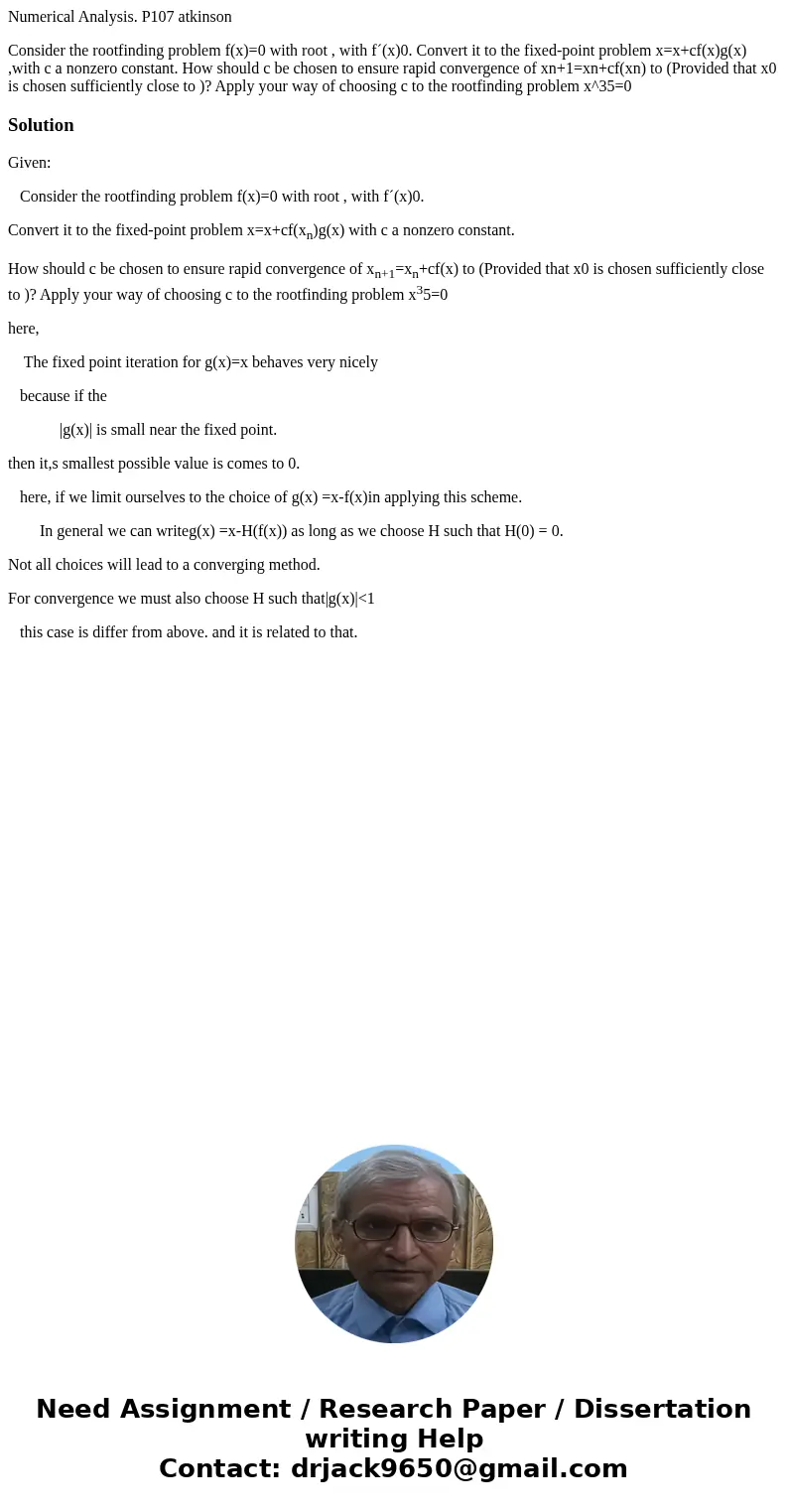Numerical Analysis P107 atkinson Consider the rootfinding pr
Numerical Analysis. P107 atkinson
Consider the rootfinding problem f(x)=0 with root , with f´(x)0. Convert it to the fixed-point problem x=x+cf(x)g(x) ,with c a nonzero constant. How should c be chosen to ensure rapid convergence of xn+1=xn+cf(xn) to (Provided that x0 is chosen sufficiently close to )? Apply your way of choosing c to the rootfinding problem x^35=0
Solution
Given:
Consider the rootfinding problem f(x)=0 with root , with f´(x)0.
Convert it to the fixed-point problem x=x+cf(xn)g(x) with c a nonzero constant.
How should c be chosen to ensure rapid convergence of xn+1=xn+cf(x) to (Provided that x0 is chosen sufficiently close to )? Apply your way of choosing c to the rootfinding problem x35=0
here,
The fixed point iteration for g(x)=x behaves very nicely
because if the
|g(x)| is small near the fixed point.
then it,s smallest possible value is comes to 0.
here, if we limit ourselves to the choice of g(x) =x-f(x)in applying this scheme.
In general we can writeg(x) =x-H(f(x)) as long as we choose H such that H(0) = 0.
Not all choices will lead to a converging method.
For convergence we must also choose H such that|g(x)|<1
this case is differ from above. and it is related to that.

 Homework Sourse
Homework Sourse